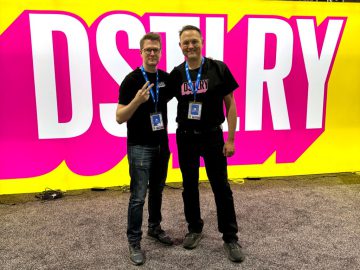Credit cards are a convenient payment method that can help you build credit. But they should be used with care to maintain good financial health. If you’re considering applying for your first card or are a credit card newbie, you can benefit from reviewing some best practices.
Doing this can help you make informed decisions when managing your credit card usage and help you build healthy habits. Here are some tips that can benefit new credit card users.
1. Don’t spend money you don’t have
It’s best to treat credit cards just like debit cards. When you use a debit card, money is withdrawn from your checking account, you can only spend money you have. It’s wise to follow a similar approach when swiping your credit card.
If you spend beyond your means, you won’t be able to afford to pay your total balance off when your credit card bill arrives. Your credit card issuer will charge interest if you carry a balance. You can avoid expensive credit card debt by only spending what you can afford.
2. Always pay your credit card bills on time
It’s necessary to stay on top of your credit card payments. You should pay your bill on time every month. If you don’t, your credit card issuer will charge you late fees.
Another reason to pay your bill on time is to benefit your credit. If you miss payments or pay your bills more than 30 days late, you’ll end up with negative marks on your credit report — which doesn’t look good to creditors.
If you want to maintain a good credit score, on-time payments are a must. Why? Your payment history is recorded on your credit report and it makes up 35% of your FICO® Score. In fact, that’s the biggest part of your credit score. Be sure to prioritize on-time payments.
3. Unlock rewards with rewards credit cards
Rewards credit cards allow you to earn rewards when you swipe your card for everyday purchases. You can earn points, miles, or cash back, depending on the card you choose. Cashing out your rewards for travel purchases or a statement credit can feel like hitting the jackpot.
Keep in mind that if you have little to no credit history, you may need to use non-rewards cards for some time to build up your credit score before qualifying for a rewards card.
But as you build credit and establish healthy credit card usage habits, you can improve your credit score — which could make you a candidate for a rewards credit card.
Ready to earn valuable rewards with your credit card? Explore our list of the best cash back credit cards to learn how easy it is to get rewarded when you swipe your card.
4. Pay more than the minimum amount due
Here’s another tip: don’t just make your card’s minimum payment every month. As mentioned above, carrying a balance on your card will result in interest charges. According to the Federal Reserve Bank of St. Louis, the average credit card interest rate was 22.76% in May 2024. The best strategy to avoid paying a rate like this is to pay off the entire statement balance every time your credit card bill arrives.
If you don’t, as your account balance climbs, your debt will grow — making it harder to pay off. You can avoid debt and added stress by paying the entire statement balance.
5. Aim to use less than 30% of your available credit
You should also stay alert to how much credit you’re using. While several factors influence your credit score, credit utilization is one crucial marker. Your credit utilization ratio, or the amount of available credit you use, makes up 30% of your FICO Score.
Maintaining a low credit utilization ratio is a good move for your credit. Many experts recommend keeping your credit utilization ratio below 30%. Let’s imagine your card’s credit limit is $1,000. You’ll want to keep your balance below $300 to meet that suggested guideline.
Establish good habits from the beginning
These tips can help you manage your credit card usage with ease. As a new credit card user, you can set yourself up for success by establishing good spending and payment habits early on.
Don’t have a credit card? Regardless of age or life stage, it’s never too late to start using credit cards. If you’re ready to apply for your first card, explore the best starter credit cards to learn more. Reading and heeding the above tips can give you more confidence as a new credit card user.





